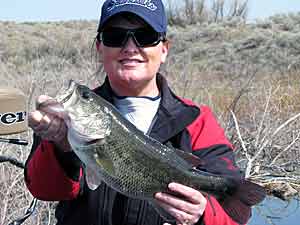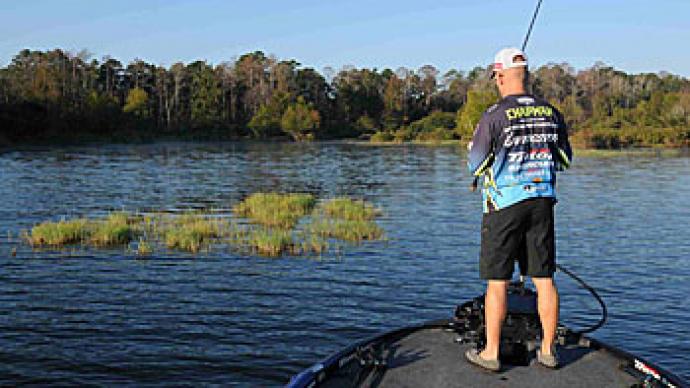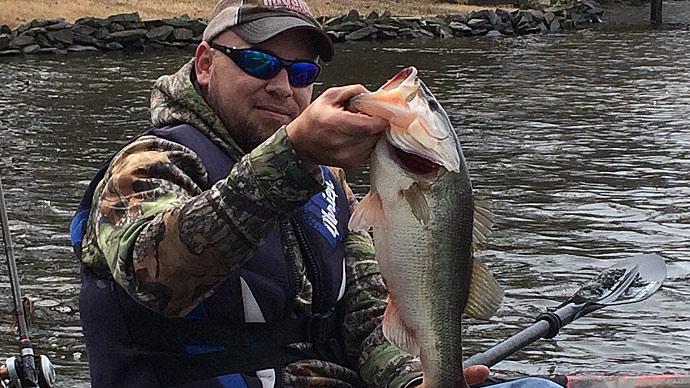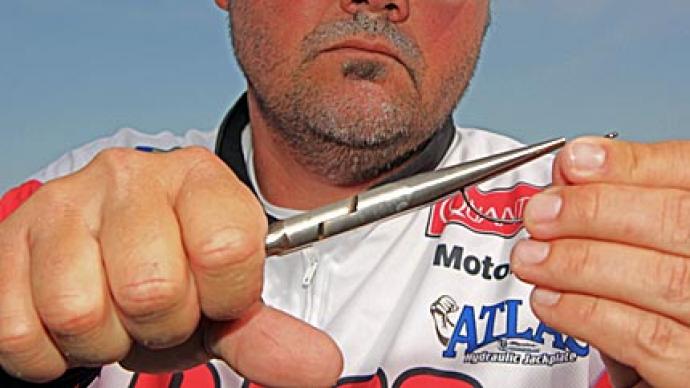
While fishing in the FLW Outdoors Texas Tournament Trail championship tournament on Lake Ray Hubbard, I learned a valuable lesson about hooks. On Saturday and then again on Sunday, I lost fish during the tournament, which, looking back, cost me placing high enough to earn a check. However, it wasn't until I returned home, thinking back on what I could have done differently to place higher, that I realized one of my errors. I was using the wrong hook for the type of fishing I was doing.
I had been fishing with Zoom finesse worms rigged Texas style on light line using a light wire Gamakatsu EWG hook. This combination worked great, but only for a while. When the bite changed due to a strong cold front that had moved through on Thursday, I changed my tactics but failed to switch to a stronger hook. This oversight on my part resulted in the two fish I lost coming unhooked when the light wire hook bent enough for the fish to get loose and get away.
The fish I had found during practice moved out into deeper water after the cold front moved through. So I added a heavier weight to my line and pegged it about two feet above the bait creating what we call a Mojo rig or small Carolina rig. Since I was still using light line (10-pound P-Line), I didn't change the hook.
When Carolina rigging, it is essential to use a stronger wire hook that won't bend when setting the hook. When you detect a bite on a Carolina rig presentation, you need to reel up the slack in your line and set the hook with a large sweeping motion to hook the fish properly. When using a light wire hook, like I was using, there is a greater probability that the hook will bend, allowing the fish to get away.
I should have switched to a G-Lock hook made by Gamakatsu. It is a stronger hook designed to keep your soft plastic bait up on the hook by the unique bend in the hook just below the eye of the hook. It is an excellent hook for Carolina rigging that will rarely bend on the hookset.
The folks at Gamakatsu have gone to great lengths to design and manufacture hooks for all fishing applications. It is up to the fisherman to know which hook is best suited for the different fishing applications.
I have had great success with Gamakatsu hooks for many years. Even before receiving a product sponsorship from Gamakatsu, I bought their hooks because I believed them to be the best on the market. At first, I wanted to blame the hook for bending, but after looking into it further, the problem was not the hook. It was the hooker. I hope you can learn from my mistake; I indeed have. In the future, I'll pay closer attention to this often-overlooked important part of the fishing equation.
Until next time, enjoy the great outdoors.
Tom Lester II is a professional bass angler and outdoor writer. He lives in Corsicana, TX, with his wife, Kelly, and daughters, Tatum and Megan. He fishes bass tournaments throughout the southern and midwestern United States and represents numerous tackle manufacturers across the country.




